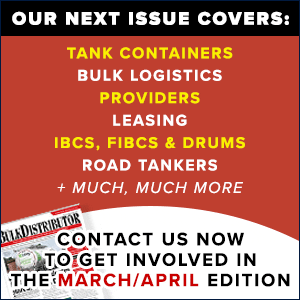
The study reveals that many UK hauliers remain unprepared for the end of the Brexit transition period, with just 3% stating that they are totally prepared for the transition. 84% of respondents stated that they needed more clarity on border legislation changes from the Government.
Specialist haulage solutions platform, Haulage Exchange, asked employees from 32 UK-based haulage companies for their insights on how Brexit has affected – and will affect – their business, how prepared for the end of the transition they feel, and what they need to be sufficiently prepared for the changes.
Confusion around the transition is further revealed as 66% of respondents state that they are not prepared to present the Safety and Security Declarations at customs – as they assumed these documents were the responsibility of the exporter or importer instead of the haulier or courier.
With the EU and UK’s haulage industries deeply connected, clear guidance is by far the biggest thing missing from the Brexit transition process where most hauliers are concerned. While the majority want clarity on changes to border legislation, almost half (47%) state that they simply need more time to get the necessary admin done.
Customs remains a sticking point
Nearly 3 in 4 haulage companies (72%) believe that they will be negatively impacted by customs changes following the end of the transition period.
Alongside their expectations of harmful customs changes, a large proportion of hauliers don’t feel equipped to deal with them – 62% of haulage companies believe that they need to be more prepared for changes to custom checks when exporting and importing goods to the EU. Staggeringly, a further 28% of these companies are ‘not at all’ prepared for the upcoming customs changes.
How many feel that they are prepared for customs?
- 12% of respondents state that they’re sufficiently prepared, with 9% of these stating that they have invested heavily to ensure all is in place and understood
- 13% of haulage respondents have trained their hauliers and couriers to fill in the Safety and Security Declarations themselves
- 13% will have these declarations filled in manually by admin staff on behalf of the hauliers
- 9% have implemented technology software to automatically fill these declarations
“What changes do you believe will most impact your company after the 1st January 2021?”
Increased waiting times at the border (75%) and more time spent on pre-crossing admin (66%) are the changes that most people expect to have an impact day-to-day.
- Increased waiting time at the border – 75%
- Increased time spent in admin in preparation to cross the border – 66%
- Higher tariffs imposed on goods – 50%
- Less access to European goods – 44%
- Changing licensing and registration requirements – 41%
- Less access to European staff – 25%
- We don’t believe we’ll be impacted – 6%
“What does your company need to make the Brexit transition more manageable?”
In order to dilute the sting from the transition, hauliers are seeking additional clarity and support for their companies, as well as more time to complete the required admin.
- More clarity on border legislation changes from the government – 84%
- More time to make the legislation changes and get the required admin in order – 47%
- Additional financial support to implement new software technology – 22%
- Additional staff support – 19%
- Nothing, we are totally prepared – 3%
Full findings from the UK Hauliers Brexit Transition survey can be found on the Haulage Exchange website.
Sam Wilkinson, chief revenue officer at Transport Exchange Group, says:
“With the upcoming Brexit transition deadline, our focus is to ensure users of our market-leading Freight Exchange platforms, Courier Exchange and Haulage Exchange, can continue to carry goods to and from the EU without disruption.
“According to our survey, delays at ports and paperwork are front of mind for carriers. To ensure they can be prepared and avoid delays we are working with industry experts to provide educational content that will be signposted directly from within our platform.
“Post-transition period, freight will continue to move and Transport Exchange Group will continue to lead the way for UK Freight Exchange platforms.”
Sam Tyagi, supply chain expert and CEO of KlearNow, says:
“It’s abundantly obvious that as of right now, there simply aren’t enough staff employed at UK borders to handle the increase in workload brought about by Brexit. UK borders are short-handed to the tune of about 50,000 staff and there will be an anticipated five-fold increase in customs entries with Brexit leading to as many 200 million extra customs entries.
“Our fear is that this will quickly lead to a two-tier system with priority given to larger importers who spend more on landing their goods at the expense of smaller businesses and their customers.
“Customs clearance is so often the bottleneck in international supply chains. It’s a critical function but it has failed to keep pace with technological innovation. An alarming percentage of customs entries are still processed with manual data entry staff. As a result, customs clearance is already slow, opaque and prone to error. It’s only going to get worse.
“Without digitisation and automation – even if the extra staff are trained and recruited by January – the extra burden and stress will hit those on the frontline the hardest.”
